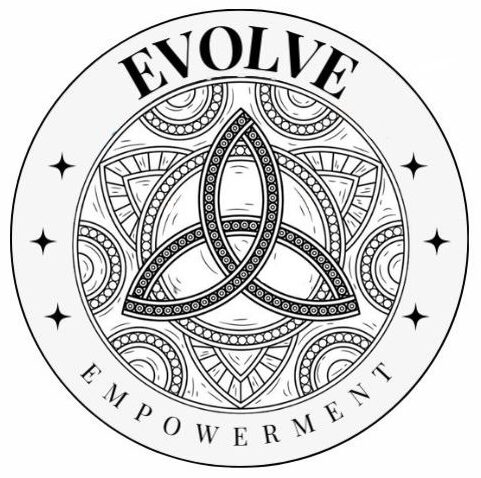The journey of awakening is deeply personal, filled with moments of revelation, self-discovery, and inner clarity.
At its heart lies intuition—an innate, often underestimated compass that guides us toward growth and authenticity.
To truly harness this gift, we must first understand its essence, learn to cultivate it, and embrace it as a cornerstone of our spiritual and personal evolution.

The Inner Voice of Wisdom.
What is Intuition? Intuition is the subtle, often unspoken knowledge that arises within us without the need for conscious reasoning.
It’s a feeling, a whisper, or a sudden clarity that bypasses logical thought.
Often referred to as our “inner voice” or “gut feeling,” intuition serves as a bridge between our conscious mind and the deeper wisdom housed in our subconscious.
Unlike analytical thinking, which relies on facts and sequential reasoning, intuition draws upon a vast reservoir of experiences, emotions, and stored knowledge to deliver insights almost instantaneously.
It’s the subconscious mind’s way of synthesizing information into a form that feels like instinct but is, in fact, rooted in profound understanding.
This inner knowing often feels inexplicable—a quiet certainty that defies logic yet proves remarkably accurate.
For instance, you might suddenly sense that a certain decision is right for you, even without a clear rationale.
Such moments highlight how intuition can bypass the noise of overthinking, offering guidance that feels both timely and deeply aligned with your true self.
The Significance of Intuition in Personal Growth
Intuition plays a vital role in personal development, acting as a guide that gently nudges us toward choices aligned with our true selves. It helps us navigate life’s complexities by providing clarity in moments of uncertainty. Unlike external advice or societal expectations, intuition emanates from within, offering guidance tailored to our unique journey. When we trust and follow this inner knowing, we can:
- Make Authentic Decisions. Intuition helps us choose paths that resonate deeply with our values and aspirations, enabling us to live authentically. Whether it’s selecting a career, forming relationships, or pursuing personal goals, intuitive choices often lead to fulfillment and harmony.
- Avoid Distractions. In a world filled with noise and conflicting demands, intuition acts as a filter, steering us away from options that do not serve our growth. It empowers us to say “no” to distractions and focus on what truly matters.
- Unlock Potential. By listening to our inner voice, we can uncover latent talents, passions, and opportunities. Intuition often directs us to explore uncharted territory, pushing us beyond comfort zones to reach our highest potential.
- Enhance Emotional Resilience. Trusting intuition fosters self-confidence and emotional strength. It teaches us to rely on our inner resources, making us less dependent on external validation or approval.
Intuition also acts as a bridge between the conscious and subconscious mind, synthesizing vast amounts of information stored in our subconscious into actionable insights. This process allows us to access wisdom that may not be immediately apparent through logical reasoning, giving us a powerful tool for personal growth and transformation.
Dispelling Common Misconceptions About Intuition.
Despite its importance, intuition is often misunderstood.
Some dismiss it as mere instinct or unreliable emotion, while others equate it with psychic abilities. In truth, intuition is a natural human faculty available to all, and cultivating it involves developing trust and clarity rather than relying on mystical interpretations.
Historical and Cultural Perspectives on Intuition.
Across cultures and eras, intuition has been revered as a source of wisdom. Indigenous traditions often celebrate intuitive guidance as a connection to nature and spirit.
Ancient philosophies, such as those in Greece and India, recognize intuition as a critical component of higher knowledge and enlightenment.
By studying these perspectives, we can appreciate the universality of intuition and its timeless role in human evolution.

Practices to Enhance Your Inner Knowing.
Mindfulness and Meditation.
Mindfulness practices and meditation are among the most effective tools for developing intuition.
By quieting the mind and cultivating present-moment awareness, we can tune into subtle signals that are often drowned out by mental chatter.
A daily meditation practice helps create a space where intuition can emerge naturally.
Exercises to Strengthen Intuition.
- Journaling. Writing down thoughts, dreams, and gut feelings without judgment helps uncover patterns and insights that reveal intuitive guidance.
- Visualization. Imagining scenarios and observing the feelings they evoke can clarify intuitive responses.
- Reflection. Spending time alone to process experiences allows intuitive insights to surface.
Recognizing Physical Sensations Linked to Intuition.
Intuition often manifests physically. A sudden sense of calm, a tightening in the chest, or tingling sensations can signal intuitive messages.
Learning to identify and trust these bodily cues is essential for interpreting and acting on intuitive guidance.
Embracing Intuition on Your Path to Awakening.
Overcoming Self-Doubt.
Self-doubt is a common barrier to trusting intuition. We’re conditioned to prioritize logic and external validation, which can cause us to second-guess our inner voice.
To overcome this, it’s essential to practice self-compassion and remind ourselves that intuition grows stronger with use and trust.
Transformative Real-Life Stories
Stories of individuals who trusted their intuition often inspire us to do the same.
Consider the artist who followed an inexplicable urge to pursue a new medium, only to achieve groundbreaking success, or the entrepreneur who pivoted careers based on a gut feeling, leading to profound personal and professional fulfillment.
These examples underscore the transformative power of intuition.
Bridging Logic and Intuition.
Contrary to popular belief, intuition and logic are not opposing forces. Instead, they complement one another.
Integrating intuition with rational thought creates a balanced approach to decision-making that honors both inner knowing and external evidence.

Relying on Intuition. A Guide to Spiritual Growth and Awakening.
Utilizing Intuition for Spiritual Alignment.
Intuition plays a crucial role in spiritual growth. It helps us recognize what truly resonates with our soul, guiding us toward practices, relationships, and paths that align with our higher purpose.
Unlocking Creativity and Innovation.
Many breakthroughs in art, science, and technology are born from intuitive insights.
By trusting the sparks of inspiration that arise spontaneously, we can access boundless creativity and problem-solving abilities.
Creating a Balanced Decision-Making Approach.
Relying solely on logic can lead to over-analysis, while depending exclusively on intuition may result in impulsiveness.
A balanced approach involves using intuition to identify possibilities and logic to evaluate them. This synergy fosters decisions that are both practical and deeply aligned with our true selves.
Embracing Intuition as Your Guiding Light
Intuition is more than a fleeting feeling; it is a profound guide that can lead us to our most authentic selves.
By understanding its nature, cultivating it through dedicated practices, and learning to trust it despite doubt, we open the door to deeper self-awareness and spiritual awakening.
On this path, intuition becomes not only a tool but a trusted companion, illuminating the way forward with clarity and wisdom. Trust it, nurture it, and allow it to guide you toward the life you are meant to live.
Bibliography.
- Chopra, Deepak. The Book of Secrets: Unlocking the Hidden Dimensions of Your Life. Harmony, 2004.
- A comprehensive exploration of intuition, consciousness, and personal transformation.
- Bolte Taylor, Jill. Whole Brain Living: The Anatomy of Choice and the Four Characters That Drive Our Life. Hay House Inc., 2021.
- This book discusses how the brain’s functions align with intuitive and logical decision-making.
- Gladwell, Malcolm. Blink: The Power of Thinking Without Thinking. Back Bay Books, 2007.
- A popular work on the power of intuition and subconscious decision-making.

